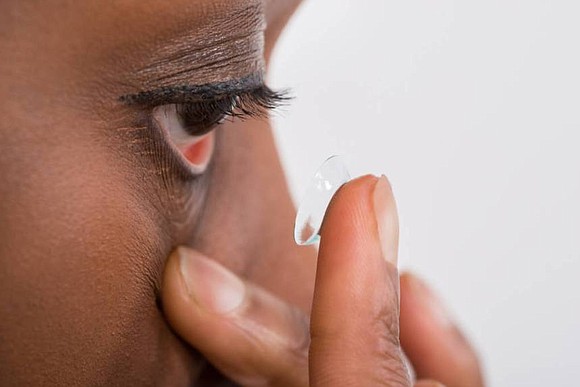Sunglass Eyes? FDA Approves Contact Lenses That Block the Sun
Style Magazine Newswire | 4/20/2018, 10:16 a.m.
BlackDoctor.Org
When contact lenses first came out, they were an alternative to eyeglasses, making it even easier for those with vision problems to see. Well, now even those who wear contact lenses, have got it even easier thanks to technology.
On Tuesday, the U.S. Food and Drug Administration approved the first contact lenses that can act like sunglasses.
A special additive automatically darkens the lenses when exposed to bright light, while they become clear again in normal or dark lighting conditions.
“This contact lens is the first of its kind to incorporate the same technology that is used in eyeglasses that automatically darken in the sun,” said Malvina Eydelman. She directs the division of ophthalmic, and ear, nose and throat devices at the FDA’s Center for Devices and Radiological Health.
Johnson & Johnson Vision Care Inc.’s Acuvue Oasys Contact Lenses with Transitions Light Intelligent Technology aresoft contact lenses for daily use for a maximum of 14 days by people who are nearsighted or farsighted and have no eye disease. They can also be used by people with certain degrees of astigmatism, an abnormal curvature of the eye, the FDA said in a news release.
About 42 percent of Americans aged 12 to 54 are nearsighted and 5 to 10 percent of all Americans are farsighted, according to the U.S. National Eye Institute. In 2014, more than 40 million Americans used contact lenses, according to the U.S. Centers for Disease Control and Prevention.
The FDA’s approval was based on research that included a clinical study evaluating daytime and nighttime driving performance among 24 people wearing the contact lenses. There were no problems with driving performance or vision while wearing the contact lenses, the study found.
The FDA did note that certain patients should not use these contact lenses. They include people with inflammation or infection in their eyes, those with eye diseases or eye injuries, and those who have severe dry eye or allergic conditions that could be exacerbated by wearing the special lenses.
Patients should not sleep with the contact lenses in their eyes or expose them to water, the FDA added.




